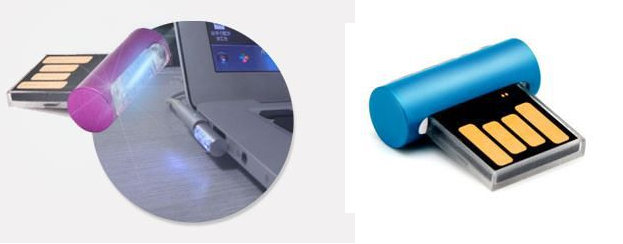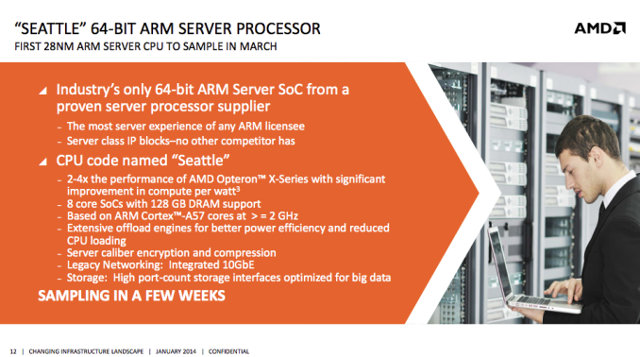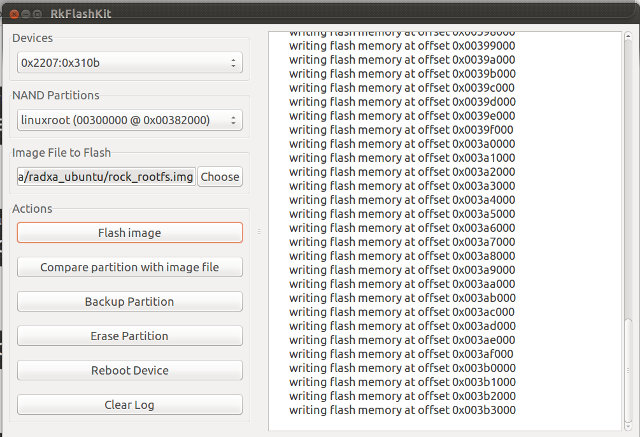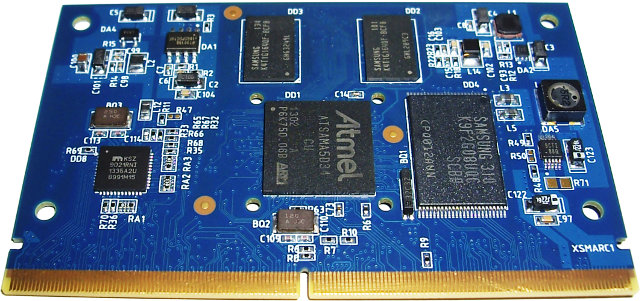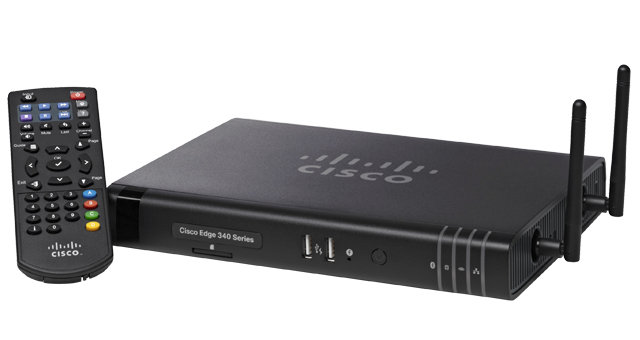The first release of the year, Linaro 14.01, is now out with Linux Kernel 3.13 (baseline), Linux Kernel 3.10.28 (LSK), Android 4.4.2, and Ubuntu Linaro 14.01. The most important part of this release is support for Arndale Octa, which makes big.LITTLE processing code available to a low cost platform. Android 4.4.x is now on par with Android 4.3 in terms of support. Linaro has also decided to provide quarterly stable released with GCC, and Linaro GCC 4.7-2014.01 is the first quarterly stable release with the next one planned with Linaro 14.04. Here are the highlights of this release: Linaro Stable Kernel (LSK) 3.10.28-2014.01 with latest version of GTS patch set for big.LITTLE, and Android support Linux Linaro 3.13-2014.01: gator version 5.17 updated linaro-android-3.13-merge topic by John Stultz, the “Revert “PM / Sleep: Require CAP_BLOCK_SUSPEND to use wake_lock/wake_unlock” patch included uprobes v4 updated big-LITTLE-pmu topic from ARM Landing Team (LT) updated […]
RYVAL Elf Could Be the World’s Smallest USB Flash Drive
Hexino, a French company selling “fashion technology” under the brand RYVAL, may be offering the smallest USB flash drives available today with RYVAL Elf. This tiny mass storage device measure 1.8 cm x 1.8 cm x 0.68 cm, weights only 2 grams, and is available with capacities of 8GB, 16GB, or 32GB. The specifications listed on the company’s website are as follows: USB 2.0 compatible with Windows Vista, 7 and 8 Write speed – Up to 4 MB/s Read speed – Up to 12 MB/s Weight – 2 grams Dimensions – 18 mm x 18 mm x 6.8 mm Capacity – 8 GB to 32 GB Colors – Blue, Pink, and Green Material – Aluminium They only mention compatibility with Windows, but I don’t see why it could not work with Mac, Android, and Linux based devices and computers. It’s small enough to replace microSD cards for permanent storage expansion, […]
AMD Opteron A1100 Server SoCs Feature 4 to 8 ARM Cortex A57 Cores
A few months ago, AMD published a roadmap showing AMD “Seattle” Server CPUs based on ARMv8 64-bit architecture were planned for H2 Q2014. The company has now announced the first series of processors that will be based on ARM Cortex A57: AMD Opteron A1100 Series, as well as the corresponding development platform at the Open Compute Project Summit in San Jose, California. Key features of AMD Opteron A1100 Series processors: 4 or 8 core ARM Corte-A57 processors Up to 4 MB of shared L2 and 8 MB of shared L3 cache Configurable dual DDR3 or DDR4 memory channels with ECC at up to 1866 MT/second Up to 4 SODIMM, UDIMM or RDIMMs 8x lanes of PCI-Express Gen 3 I/O 8x Serial ATA 3 ports 2x 10 Gigabit Ethernet ports ARM TrustZone technology for enhanced security Crypto and data compression co-processors On the software side, the company mentionned it is a […]
How to Install XBMC on D-Link Boxee Box
D-Link Boxee Box is a Linux based media player powered by Intel Atom CE4100 processor that became available in 2010, and features a dual sided RF remote / QWERTY keyboard that probably inspired many of the air mouse that are available today. The box features many of the ports and connectors that are available on most Android STB today, namely an HDMI port, an optical S/PDIF) out, a stereo analog audio out, Ethernet and 802.11n Wi-Fi, two USB ports, and an SD card slot. Many people however got disappointed with the firmware at launch time, and even if subsequent firmware updates have improved the user experience, some people have considered it was worth the effort to port XBMC to the device. Myles McNamara wrote the instructions to install XBMC on D-Link Boxee Box. I’ll summarize the steps below, and it appears to be relatively easy. Installing Boxee+Hacks to gain root […]
Getting Started with Raxda Rock – How to Generate and Flash Ubuntu Saucy Server and Desktop Images
I’ve already written a guide showing how to build and install Android in Radxa Rock. Today I’m going to build the Linux kernel, generate a Ubuntu server images based latest Ubuntu Linaro server release, flash the image to the NAND flash, and show how to install LXDE or XFCE desktop environment. If you are just interested in installing one of the latest supported images, you can download Android, dual boot (Android/Ubuntu), Ubuntu ALIP, and Router images for Radxa Rock @ http://dl.radxa.com/rock/images/, and skip “build” and “generate” instructions, and just follow the flashing instructions below. All steps in this tutorial will be done in Ubuntu 13.10, and lots of the instructions below follow hwswbits blog and Ubuntu Radxa Wiki. Build the Linux kernel Let’s start by building the Linux kernel. I’m assuming you’ve already install development tools in Ubuntu (e.g. apt-get install build-essentials). You can refer to the list at the beginning […]
AXONIM Devices Announces AXSY-SoM-SAMA5D3 System-on-Module Powered by Atmel SAMA5D3x Cortex-A5 Processor
AXONIM Devices, a company based in the republic of Belarus, announced AXSY-SoM-SAMA5D3 System on Module (SOM) powered by Atmel SAMA5D3x Cortex-A5 processor. This SoM targets industrial applications and supports low power application such as POS-terminals, handheld devices, medical devices and more. Here are AXSY-SoM-SAMA5D3x SOM specifications: SoC – Atmel ATSAMA5D3x ARM Cortex-A5 processors @ 536 MHz (SAMA5D31, SAMA5D33, SAMA5D34, SAMA5D35, or SAMA5D36) System memory – 128/256/512 MB DDR2 Storage – 256MB/512MB/1GB NAND, 1 to 8MB SPI Flash Interfaces: 6x UARTs, 3x I2C, 2x SSC (for I2S Audio CODECs), 2x SPI, 2x CAN 2.0B 1x USB OTG 2.0 High Speed, 3x USB 2.0 High Speed Host 1x 10/100/1G Ethernet (Gigabit PHY on board), 1x 10/100 Ethernet (with IEEE1588v2 support) 1x Memory BUS (EBI) LCD 24 bpp TTL 3x MMC/SD 4x PWM 1x RTC 1x SMD (SmartHSFe Modem Device) – Conexant CX20548 with SmartDAA technology support Power supply – 3.3V / 5V […]
Cisco Edge 340 Digital Media Player Targets Digital Signage & Business Applications
Most of the time I feature low cost (Chinese) media players in this blog, but today I’ve had a look at a media player at the other side of the market that targets business users with applications such as webcasting and video sharing, digital signage, and business IPTV. Cisco Edge 340 digital media player (DMP) comes in two flavors “Wireless” and “non-wireless”, and boast features such as PoE or RS-232 which are not often found in consumer devices. Cisco Edge 340 Specifications: SoC – Dual 1.60 GHz processor with integrated GPU @ 400MHz, most probably Intel Atom Z2560. It turns out it could be Intel Atom CE5335 instead. System Memory – 2GB DDR3 @ 800 MHz Storage – 32GB SSD (70MB/s write speed) and SD card slot Connectivity – 1x Ethernet 10/100/1000-Gbps port with PoE and PoE+ support. Wireless version only: Dual band Wi-Fi 802.11 b/g/n + Bluetooth 4.0 Video […]
Linux Kernel 3.13 Release
Linus Torvalds announced the release of Linux Kernel 3.13 yesterday: The release got delayed by a week due to travels, but I suspect that’s just as well. We had a few fixes come in, and while it wasn’t a lot, I think we’re better off for it. At least I hope so – I’ll be very disappointed if any of them cause more problems than they fix.. Anyway, the patch from rc8 is fairly small, with mainly some small arch updates (arm, mips, powerpc, s390, sparc, x86 all had some minor changes, some of them due to a networking fix for the bpf jit). And drivers (mainly gpu and networking). And some generic networking fixes. The appended shortlog gives more details. Anyway, with this, the merge window for 3.14 is obviously open. Kernel 3.12 brought new features to BTRFS and XFS file systems, PC’s GPU drivers improvements, better memory handling, […]



